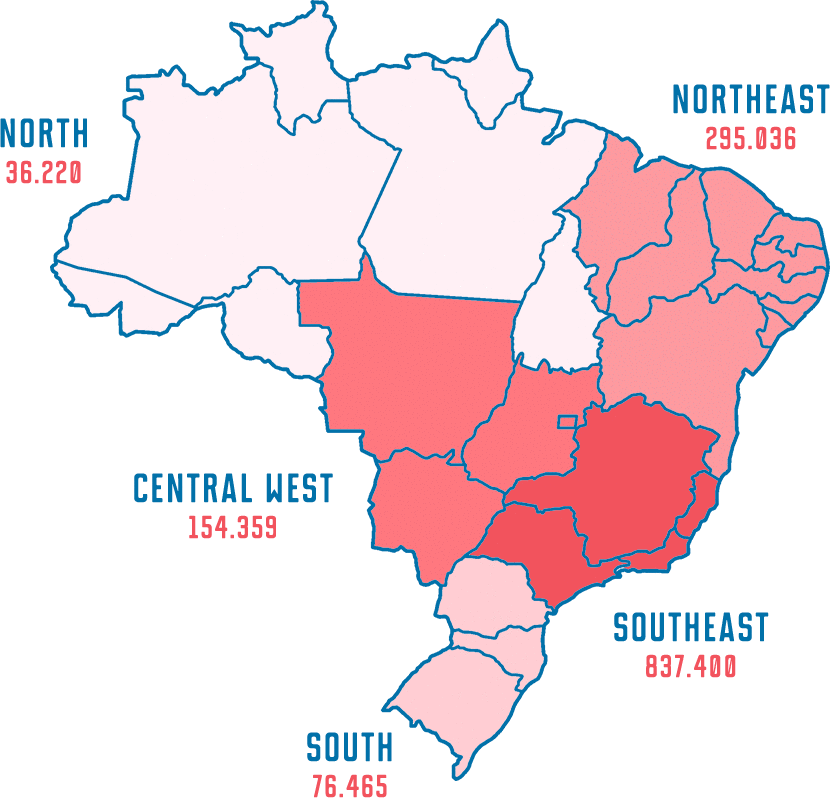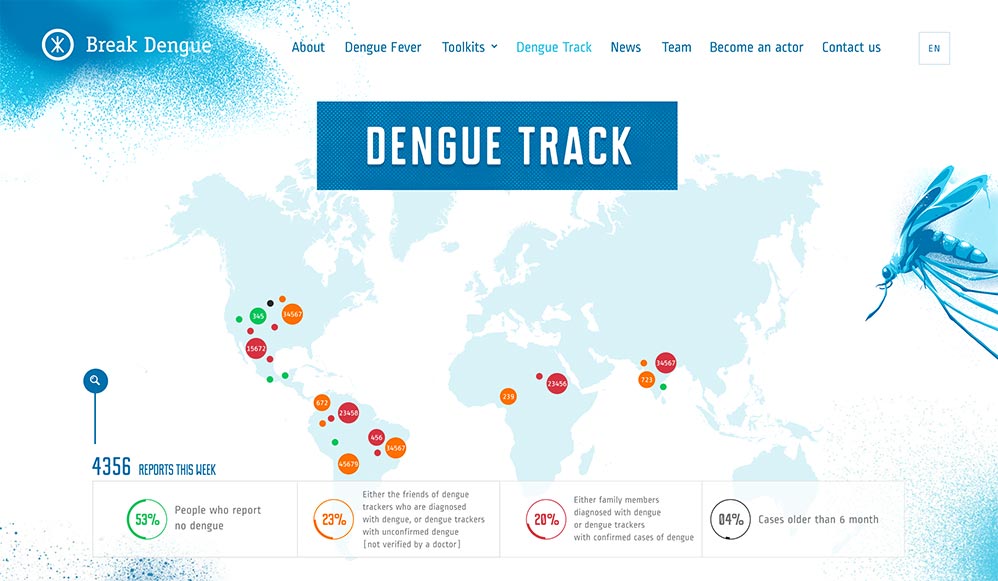All against dengue
Thanks! You can still help us:
Join the dengue track
We are helping to build the ultimate dengue tracking system, and we need you!
Learn & protect yourself
Take one minute to discover how you can protect yourself and your family.
Thanks! You can still help us:
We are helping to build the ultimate dengue tracking system, and we need you!
Take one minute to discover how you can protect yourself and your family.
Dengue is endemic in Brazil. This means that the disease occurs every year, usually during the wet season when Aedes mosquitoes’ population sizes are high and the rainfall is optimal for breeding.
People provide the mosquitoes not only with blood meals but also water-holding containers where the mosquitoes lay their eggs.
In addition, this country is at periodic risk for epidemic dengue (i.e., when large numbers of people become infected during a short period), which requires a coincidence of large numbers of vector mosquitoes and large numbers of people with no immunity to one or more of the four serotypes (CDC, 2015).
More than 7 million dengue cases have been reported in Brazil, and Brazil is now the country with the highest incidence in the world.

Cases of severe dengue and mortality (period Jan-May 2016)
Real incidence of dengue is much higher as most dengue cases are not reported/asymptomatic.
Source : Boletim Epidemiologico - week 27 (Status July 2016) -2016
Portal de Saude Brazil government
The mosquito (type Aedes) is the primary vector of dengue.
These mosquitoes are found in tropical and subtropical regions around the world.
The virus is transmitted to humans through the bites of infected female mosquitoes.
They live in urban habitats and breed mostly in man-made containers.
After virus incubation an infected mosquito is capable of transmitting the virus for the rest of its life.
Patients who are already infected can transmit the infection via Aedes mosquitoes after their first symptoms appear.
Dengue can be caused by 4 different dengue viruses.
So a person can be infected several times.
Play & learn how together we can beat dengue

We are helping to build the ultimate dengue tracking system – and we need you. You can help us to reduce the impact of dengue fever by playing your part in a global effort to map dengue fever. By telling us about dengue cases near you, we can paint a true picture of dengue fever and predict future outbreaks in Brazil.
Dengue Track can be a valuable resource for scientists, decision-makers and NGOs working in the field. It will help health authorities and NGOs around the world to respond more quickly. The tool also offers a chance to measure the impact of new anti-dengue weapons such as vaccines and mosquito-control.